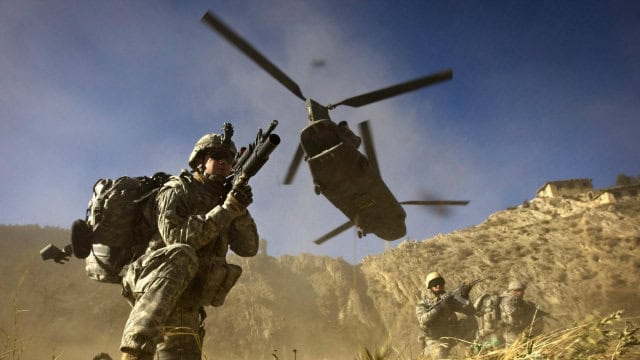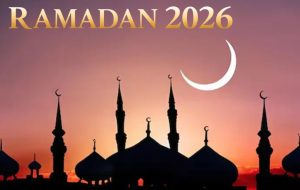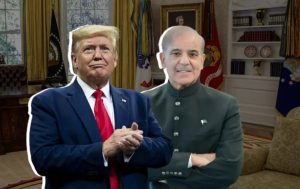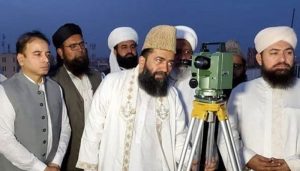LAHORE – The United States and Pakistan may have the same goal of bringing about an end to the conflict in Afghanistan, but they certainly have different ideas about the nature of that peace.
Pakistan has never been exclusively a friend or a foe of the United States. And now, the absence of a genuine strategic partnership between Islamabad-Rawalpindi and Washington, growing relations with ‘all-weather friend’ China, and a bad-mouthed US president are among key factors that have pushed the two countries to a point where they perceive one another as frenemies.
A new report, titled ‘Neither Friend Nor Foe: Pakistan, The United States And The War In Afghanistan’, released by Sydney based Lowey Institute for International Policy, has shed light on the soaring ties between two key players in Afghan war.
Hussain Nadim, a PhD candidate and the Director of South Asia Study Group at the University of Sydney, unfolds the history of US ‘war on terror’ in Iraq and Afghanistan while highlighting mistrust and suspicion that is preventing greater collaborative efforts in the region.
In a lengthy analysis report, made after interviewing a range of current and former military officials, the author maintains “while there is a willingness to still cooperate with the United States where its interests coincide with those of Pakistan, military officers fear their country will be a scapegoat for the US failure in Afghanistan.”
“At the same time, they continue to see some of the terrorist groups the United States is targeting as strategic assets in the region.”
https://en.dailypakistan.com.pk/headline/coas-qamar-bajwa-to-visit-afghanistan-russia-next-week/
TRUMP’S AFGHAN POLICY
The report which comes weeks after a ‘threatening’ speech by the new US commander-in-chief, President Donald Trump, in which he singled out Pakistan for ‘harbouring terrorists’, states “the likelihood that increased US incentives or threats will change Pakistan’s policy in Afghanistan are low.”
In a recent speech outlining his Afghanistan and South Asia policy, President Donald Trump saved his harshest words for Pakistan. Washington, he said, “can no longer be silent about Pakistan’s safe havens for terrorist organizations … We have been paying Pakistan billions and billions of dollars at the same time they are housing the very terrorists we are fighting. But that will have to change.”

“The Trump administration’s Afghanistan policy suggests that the United States will exert greater pressure on Pakistan, but no amount of US foreign assistance or coercion is likely to change Pakistan’s behaviour, especially while its security establishment continues to view US policies in the region with deep mistrust,” the Lowey Institute report reads.
The Americans have always raised awkward questions about how committed and reliable an ally Pakistan was in the fight against international terrorism. And it only got worse when after a ten-year search, US intelligence agencies finally located Osama bin Laden hiding in plain sight in a city hosting Pakistan’s most important military academy.
“Despite the United States’ considerable investment of blood and treasure in Afghanistan over more than a decade and half, which has achieved mixed results at best, the Trump administration seems willing to at least continue that investment in the short term, and perhaps even to increase it modestly. It is therefore critical to understand how Pakistan is likely to react to these continued investments, given its history of both supporting the US intervention in Afghanistan and at the same time backing groups in Afghanistan against which the United States and its allies have been fighting, chief among them the Haqqani Network.
“President Trump’s speech also reflects increasing talk within the US Congress of imposing sanctions on Pakistan as a result of its support for terrorist groups, and not just in Afghanistan. Pakistan has also been repeatedly blamed for sponsoring acts of violence in India including the deadly Mumbai attacks in 2008 and more recently the Pathankot attacks in 2016.
“For US and Western policymakers, the question remains: is Pakistan a friend or foe in the fight against terrorism? And if it is a foe, what will it take to change its behaviour?” the report adds.
“To be an enemy of America can be dangerous, but to be a friend is fatal”– Former US Secretary of State Henry Kissinger
To answer these questions, the author presents us the thinking of Pakistan’s military and of key individuals and institutions within it, including a clique of retired military officers.
The report gives voice to a view among many officers in the Pakistan Army that “the United States is a reckless power that has a history of destabilising foreign countries.”
Of the 23 interviews the author conducted with senior Pakistani military and intelligence officials, none saw the US as a positive player in its region or an actor that could be completely trusted. Yet all 23 officials also understood the importance and advantages to Pakistan of its strategic ties with the United States.
From the perspective of the Pakistan military, the United States repeatedly squandered opportunities to strike a political settlement in Afghanistan. The report cited senior Pakistan military and intelligence officials saying that “Pakistan pushed the United States hard to strike a deal with the Taliban in 2002–2004. But US officials ignored the opportunity out of a belief that they could win the war militarily.”
“There is a serious fear within the Pakistani security establishment that Pakistan will end up having the same fate as Iraq or Syria due to American adventurism.”
“Another similar concern that came out of interviews with intelligence officials was a fear that the US was applying ‘chaos theory’ in Pakistan to destabilise the country to a point where ‘taking out’ Pakistan’s nuclear arsenal, a technological accomplishment prized by both the Pakistan military and the Pakistani people, might be rendered justified.”
“There is also concern within the Pakistan Army that even today, the United States does not a have a real plan for the war in Afghanistan. According to General Ahsan Saleem Hayat, former Vice Chief of the Pakistan Army, the US war strategy is shackled by its domestic politics. He maintains that, “Wars are not won if you’re concerned about the political timelines”.
The report quotes another senior official within the intelligence services of Pakistan arguing that “the United States has the best technology, institutions and human resources to win the Afghan War, but what it lacks is a political will, which undermines US credibility”.
More generally, Pakistan military officers interviewed for this Analysis felt that Pakistan sacrificed the most in the fight against terrorist groups, and yet was punished for failures in US policy. “We are constantly told to do more and threatened with aid cuts and sanctions. There comes a time when we say ‘to hell with you’,” according to a retired Pakistan Army General who led operations against militant hideouts in Pakistan, who spoke with the author.
The analysis also indicates “the way in which Pakistan’s approach to terrorist groups has evolved and is unlikely to be shifted by either new threats or inducements.”
The debate about Good Taliban vs bad Taliban is over.
The events of 9/11 forced Pakistan to re-evaluate its strategy of using militant groups for both defensive and strategic interests in the region.

According to a senior military officer interviewed by the author, “Pakistan began to differentiate between three different types of militants.
“First, there were those militants who posed a threat to both Pakistan and the United States. Al-Qaeda fits into this category. Second, there were groups such as Tehrik-e-Taliban Pakistan that posed a threat to Pakistan only and not the United States. Third, there were those groups that posed a threat to the United States, and/or India, and were not considered a direct threat to Pakistan. This group included the Afghan Taliban, the Haqqani Network, and Lashkar-e-Tayyaba.
“There was agreement between the United States and Pakistan on how to combat the first two categories of militants. Pakistan supported the elimination of al-Qaeda, and the United States actively helped Pakistan to destroy the Tehrik-e-Taliban Pakistan. There was less agreement, however, on combatting the third category. Pakistan did not see these groups as a threat to the country and did not want to provoke them into becoming a threat.”
According to a former Pakistani general, the report continues, “the United States was essentially fighting two wars. One was the war on terrorism against al-Qaeda to which Pakistan was fully committed; the second was the war against the Taliban, which Pakistan saw as a misguided war against the ‘sons of the soil’ that could have been avoided through a political settlement.
A STORY OF MISTRUST AND NECESSITY
Former Director-General of ISI General Ehsan ul Haque was of the view that “such a strategy was needed to ensure that there was a logical end to the war and that Afghanistan did not become a bigger mess than it already was with the vacuum in local leadership,” the report adds.
“Over the course of the war, Pakistan took steps to ensure that the Taliban leadership survived the US assault. The Pakistan Army believed that once the initial military operation was concluded, Afghanistan would require a new government and reconstruction for which the Taliban leadership might be useful. There was also a vested interest in saving a group that Pakistan had trained and nurtured for over a decade. It was an investment that Pakistan wanted to protect.”
But, “Pakistan’s unwillingness to stand up against the Taliban and other militant groups in Afghanistan undermined support for it in Washington. It also came at a security cost in Pakistan. Rising acts of terrorism and sectarian violence in Pakistan due to the spread of the Taliban’s strict Islamic and political ideology in the country led to the development of new militant outfits including Tehrik-e-Taliban Pakistan, Sipah-e-Sahaba Pakistan, and Lashkar-e-Jhangvi.”
“This led to the third and current phase in Pakistan’s approach to terrorist and militant groups.”
The report reveals one reason why the relationship between Pakistan’s military and the United States has been so difficult is “because it is so transactional”.
“Pakistan and the United States have always lacked a strategic partnership between the two countries and their civilian leaderships. While Pakistan and the United States developed close ties, at least superficially, as a result of cooperation through two wars in Afghanistan, mutual suspicion continues to run deep in the military and intelligence communities of both countries.”
The report also indicates a strong sense that the United States does not have the capacity or credibility to reach a long-term, durable settlement of the war in Afghanistan. “If anything, the Pakistani security establishment sees China as playing a major role in the Afghan peace process – something with which Pakistan would be comfortable.”

CHINA & AFGHAN PEACE PROCESS
China has recently seen a rise of terrorism in the Muslim-majority Xinjiang province, which shares a border with Afghanistan and has a direct stake in the Afghan peace process. China is also a member of the quad group working on the Afghan peace process and has been directly negotiating with the Taliban. Also, China’s plans to extend its Belt and Road Initiative into Afghanistan means it is viewed by both Afghanistan and Pakistan as bringing stability to the region.
“As a result, there appears to be no indication on the part of Pakistan to strike a deal with the United States regarding the Haqqani Network.
“Now the Pakistan military and intelligence establishment views the Haqqani Network as the only leverage it has in Afghanistan – especially when the United States inevitably, in its view, fails to deliver.”
The Haqqani Network makes up the largest and most lethal insurgency group in Afghanistan against the NATO forces.
“The continued US push on the Haqqani Network is seen by the Pakistani security establishment as a means to cut Pakistan out of the Afghan peace process. However, it is unlikely to force Pakistan to change its behaviour, as it goes directly against its perceived national interest.
“The view in the Pakistani security establishment is that almost all players in Afghanistan have their preferred militant proxies. Why, then, should Pakistan give up its long-held assets?”
Also, with the growing Chinese presence in the region, there is a belief that Pakistan does not need the United States as much as it used to.
“What US policymakers will increasingly have to confront, however, is a situation in which the United States has neither the leverage nor the credibility to exert much influence on Pakistan’s national security policies.
“This is not to say Pakistan doesn’t want good working relations with the United States or the continued transfer of military technology. But it is less willing to accommodate US requests than it once was.”
COMMON INTERESTS
In the conclusion, the author shares that “it appears increasingly likely that Pakistan will move further away from the US position on Afghanistan, perhaps leveraging its growing relationship with China. This does not mean that Pakistan will actively attempt to sabotage US interests in Afghanistan. But neither is it likely to support them when they are in conflict with its own.”
“For the United States and Pakistan to move forward on Afghanistan, the best course of action is to have realistic expectations of each other, and to have regular and frank conversations about policy and practice.
“To achieve stability in Afghanistan, Pakistan doesn’t need to be a friend or foe. Both countries need to work in those areas where they continue to have common interests.
“The question is, can the United States live with what it perceives as a frenemy? And can Pakistan afford to tread on a dubious path that will isolate it in the region?”














